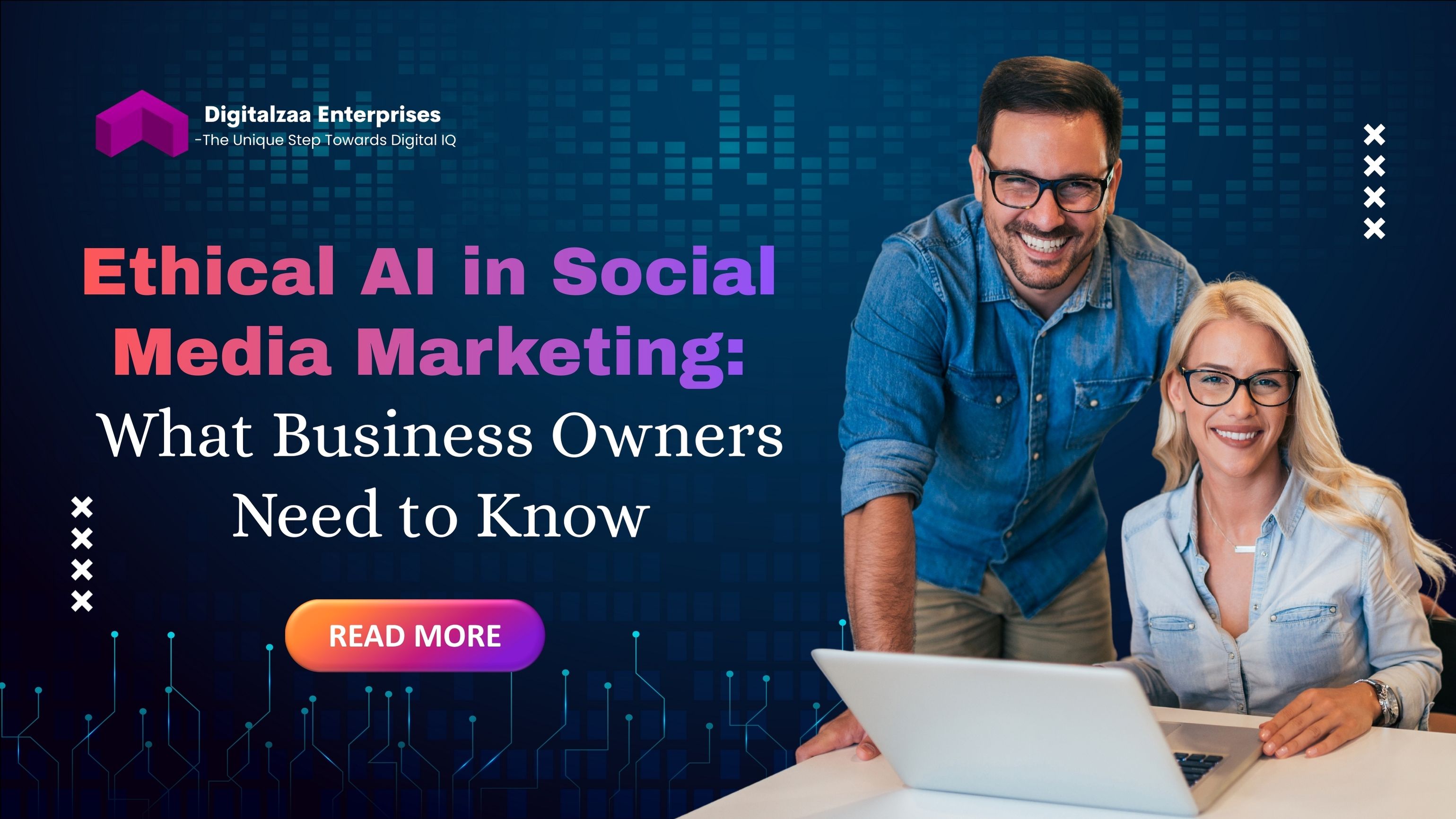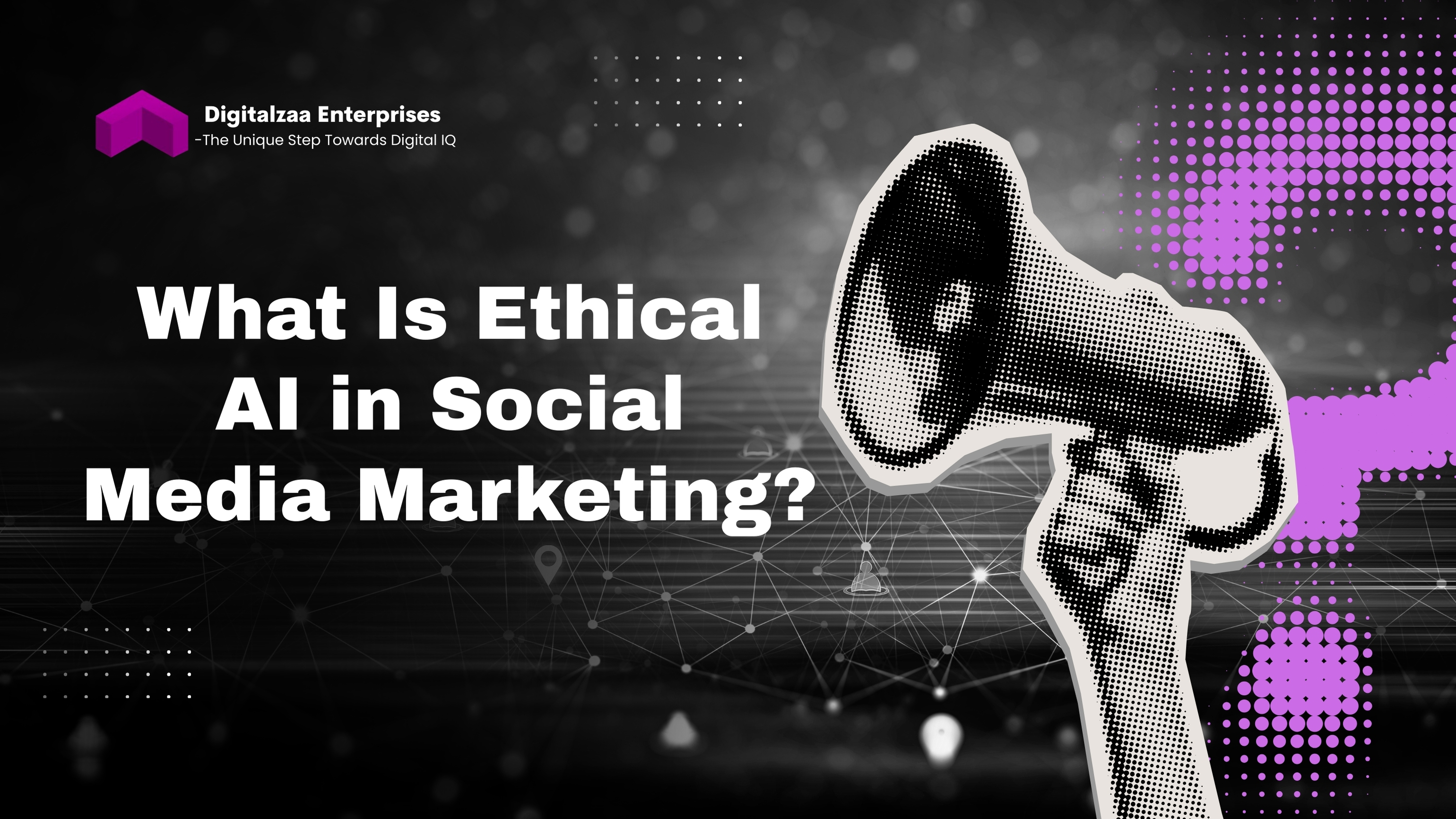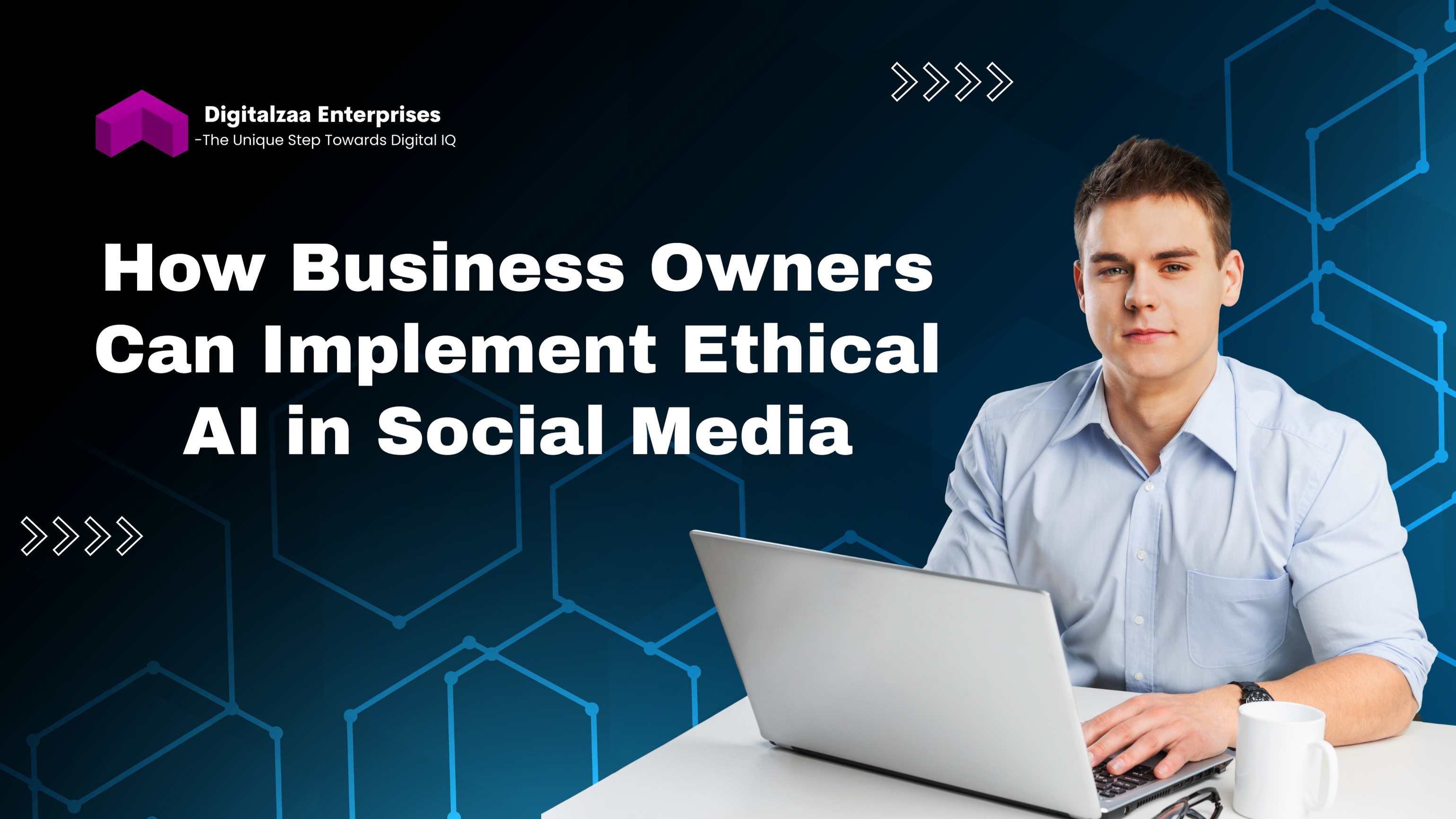Ethical AI in Social Media Marketing: What Business Owners Need to Know

Artificial intelligence is now shaping every part of digital communication, especially on social media. From automated content creation to predictive targeting and real-time engagement, AI is giving brands the power to reach audiences in smarter, faster, and more cost-efficient ways. But as this technology becomes more advanced, one reality is becoming clear: ethical AI in social media marketing is no longer optional.
Business owners must understand not only how AI improves marketing but also how to use it responsibly. The goal is not just higher engagement or optimized ad spending, but long-term trust, transparency, and compliance with global standards.
In this blog, we explore what ethical AI in social media marketing truly means, the risks of misuse, the benefits of adopting ethical frameworks, and how organizations can implement AI ethical marketing practices without compromising performance.
Why Ethics Matter in AI-Powered Social Media Marketing
AI tools now influence what users see, what brands promote, and how conversations unfold online. Algorithms decide which ads appear, which posts trend, and which profiles receive visibility.
But with great power comes great responsibility.
Here’s why ethical AI in social media marketing is essential:
- Rising consumer awareness
Users today are more informed about data usage. They question:
- Why am I seeing this ad?
- Who has access to my information?
- Is my behavior being tracked?
A recent global report shows that trust is becoming a deciding factor in brand loyalty. Businesses ignoring AI ethical marketing practices risk losing credibility.
- Increasing government regulations
From GDPR to upcoming AI-specific laws, regulations emphasize:
- data privacy
- algorithm transparency
- consent-based personalization
For responsible AI for business owners, compliance is now a business requirement—not a choice.
- Preventing reputational damage
Misuse of AI can lead to:
- discriminatory ad targeting
- misinformation amplification
- invasive personalization
- shadow profiling
One unethical decision online can permanently affect brand perception.
- Ensuring fair and inclusive marketing
Ethical AI guidelines for social media help eliminate:
- biased datasets
- exclusion of certain demographics
- stereotyping in automated messaging
Marketing should empower—not manipulate—audiences.
What Is Ethical AI in Social Media Marketing?

Ethical AI refers to the responsible development and use of artificial intelligence that prioritizes:
- fairness
- transparency
- privacy
- accountability
In social media marketing, this means using AI tools in ways that respect user rights while still enabling business growth.
Ethical AI in social media marketing covers:
- Data collection and consent
Users must know:
- What data is collected
- How it will be used
- Their right to opt out
- Transparency in automation
If chatbots interact with customers, disclosure is essential. People should not mistake AI for a human agent.
- Fair audience targeting
Ad delivery should not exclude groups based on sensitive attributes like:
- age discrimination
- gender bias
- socioeconomic profiles
- Safe content generation
Generative AI tools should avoid:
- harmful messaging
- deepfakes
- false claims
- Accountability and monitoring
Businesses must own outcomes—not blame the algorithm.
When companies adopt AI ethical marketing practices, they create sustainable growth instead of short-term wins.
How AI Is Used in Social Media Marketing Today
AI is integrated into every stage of social media engagement:
- Content creation
Tools like ChatGPT and image generators automate:
- captions
- posts
- ad copies
- visuals
- Social listening and sentiment analysis
AI monitors:
- customer feedback
- brand mentions
- competitor trends
- Predictive targeting and personalization
Algorithms decide:
- Who sees which ad
- When to display content
- What messaging resonates
- Chatbots and automated support
AI-driven chat interfaces help businesses:
- respond instantly
- handle FAQs
- qualify leads
While these tools increase efficiency, they also create ethical challenges if not managed carefully.
Key Ethical Risks Business Owners Must Address
Understanding the potential risks helps prevent misuse.
- Data Privacy Violations
AI depends on data. But collecting too much or using it without consent leads to:
- regulatory penalties
- customer mistrust
Responsible AI for business owners requires:
- minimal data collection
- encrypted storage
- transparent policies
- Algorithmic Bias
AI systems learn from existing data. If datasets are biased, outcomes will be too.
Examples include:
- targeting only certain income groups
- excluding minorities due to flawed training data
This creates ethical and legal risks.
- Deepfakes and Misinformation
Generative AI can produce:
- fake videos
- synthetic voices
- misleading news
Businesses should ensure all AI-generated content is verified and authentic.
- Over-personalization and Manipulation
AI can predict user emotions and behavior. But using it to manipulate decision-making crosses ethical lines.
Marketing should inform—not exploit—users.
- Lack of Transparency
If customers interact with a chatbot without knowing it, trust is instantly broken.
Disclosure builds confidence.
Benefits of Ethical AI for Business Owners
Adopting ethical AI in social media marketing is not just about avoiding risks—it brings powerful advantages.
- Stronger customer trust: When businesses communicate transparently, users feel safe and connected.
- Long-term brand loyalty: Trust leads to repeat engagement and higher lifetime value.
- Reduced legal exposure: Following ethical AI guidelines for social media ensures compliance with:
- GDPR
- CCPA
- Evolving AI laws
- Improved ad performance: Fair and inclusive targeting expands reach instead of narrowing it.
- Better decision-making: Clean, unbiased data produces accurate insights.
Ethics create a competitive advantage—not a limitation.
How Business Owners Can Implement Ethical AI in Social Media

Here is a step-by-step roadmap for using AI responsibly:
- Prioritize Data Transparency
Tell users:
- What information do you collect
- How long do you store it
- How can they withdraw consent
Include clear privacy notices across:
- websites
- social channels
- chatbot interactions
- Use Consent-Based Personalization
Switch from implicit tracking to opt-in models. Instead of assuming permission, request it.
This improves:
- compliance
- customer goodwill
- Conduct Regular Algorithm Audits
Check AI tools for:
- bias
- unfair targeting
- inaccurate recommendations
Audits should be:
- scheduled
- documented
- reviewed by leadership
This is a core part of AI ethical marketing practices.
- Disclose AI-Generated Interactions
Always inform users when:
- Chatbots handle conversations
- Automated replies are used
- Content is AI-generated
Transparency prevents misunderstandings.
- Choose Responsible AI Vendors
Not all AI tools follow ethical frameworks.
Before adopting a platform, evaluate:
- data usage policies
- compliance certifications
- bias-mitigation features
Responsible AI for business owners begins with the right technology partners.
- Limit Data Collection to What Is Necessary
Avoid gathering sensitive or excessive information. More data does not always equal better insights.
Follow a "minimal use" policy:
- collect only what supports the business objective
- delete outdated records
- Train Employees on Ethical AI Use
Technology alone cannot ensure ethics.
Your team must understand:
- privacy standards
- communication guidelines
- regulatory responsibilities
Internal culture matters.
- Establish Clear Accountability Policies
Assign responsibility for:
- AI decisions
- content accuracy
- data protection
Ethics must be owned—not assumed.
Future of Ethical AI in Social Media Marketing
The next phase of AI will focus on trust-driven innovation, not just automation.
Emerging trends include:
- Federated learning: AI models that learn without accessing personal data.
- Explainable AI: Systems that show how decisions are made.
- AI regulatory frameworks: Governments will implement stricter guidelines.
- Human-AI collaboration: Automation will support—not replace—human creativity.
Businesses using ethical AI in social media marketing today will be better prepared for tomorrow.
Conclusion
The rise of AI in digital communication is redefining how brands interact with consumers. But technology without responsibility leads to mistrust, regulation, and long-term damage.
For business owners, the goal is clear:
- Use AI for growth
- Protect user rights
- Maintain transparency
- Build trust, not manipulation
By adopting AI ethical marketing practices, following ethical AI guidelines for social media, and committing to responsible implementation, brands can achieve:
- higher engagement
- sustainable ROI
- long-term credibility
Ethical AI is not just a trend; it is the future foundation of social media marketing.


